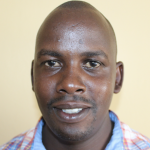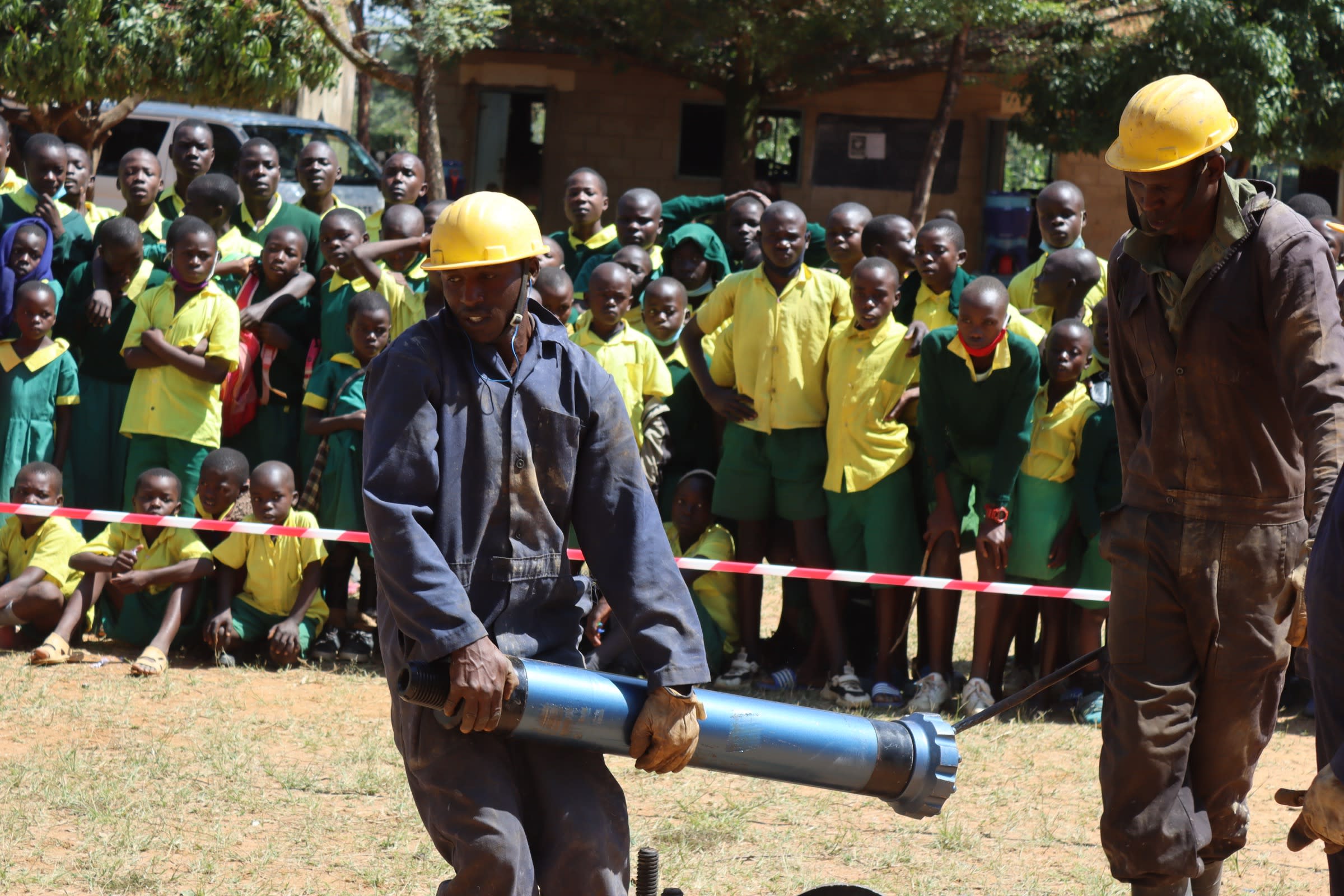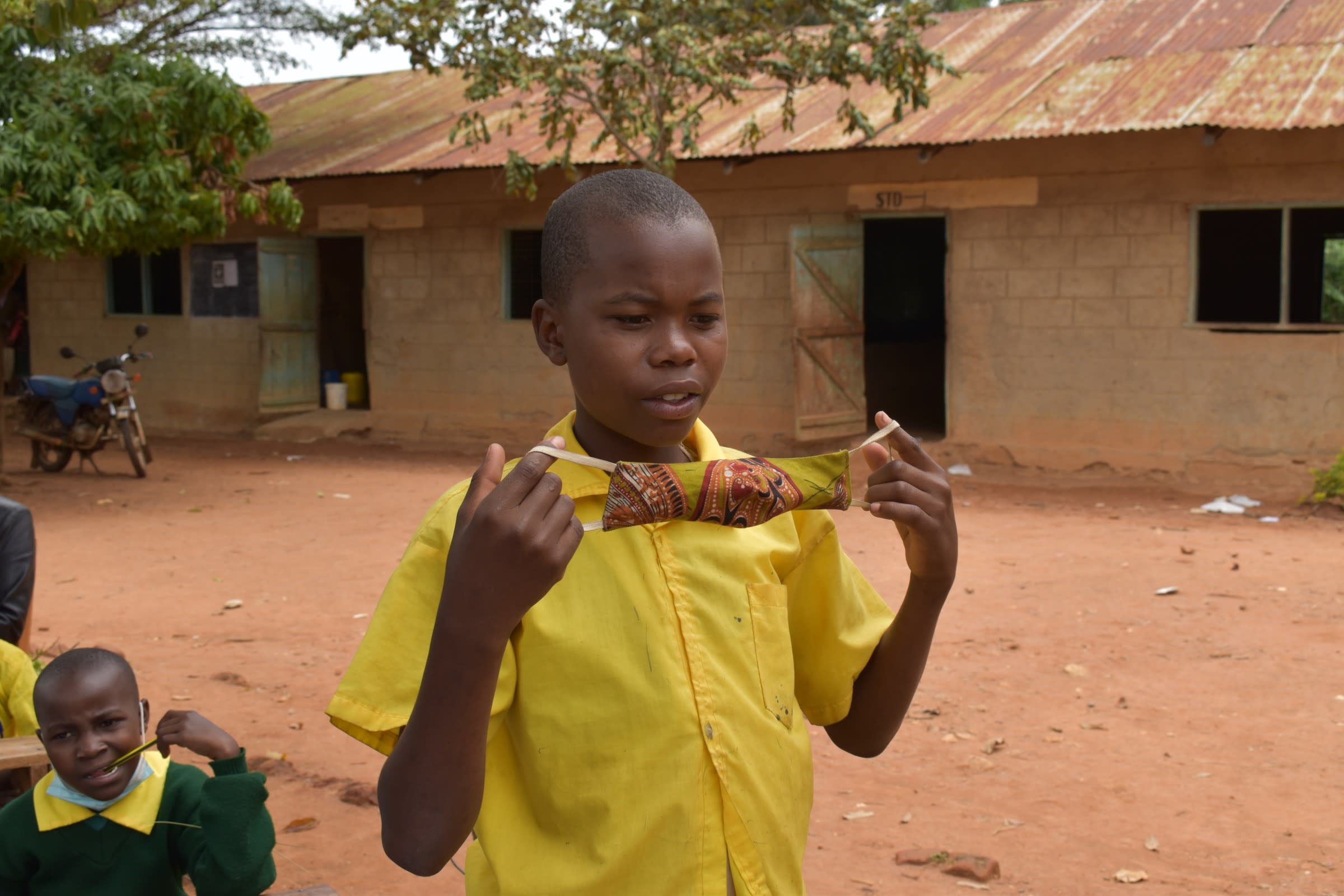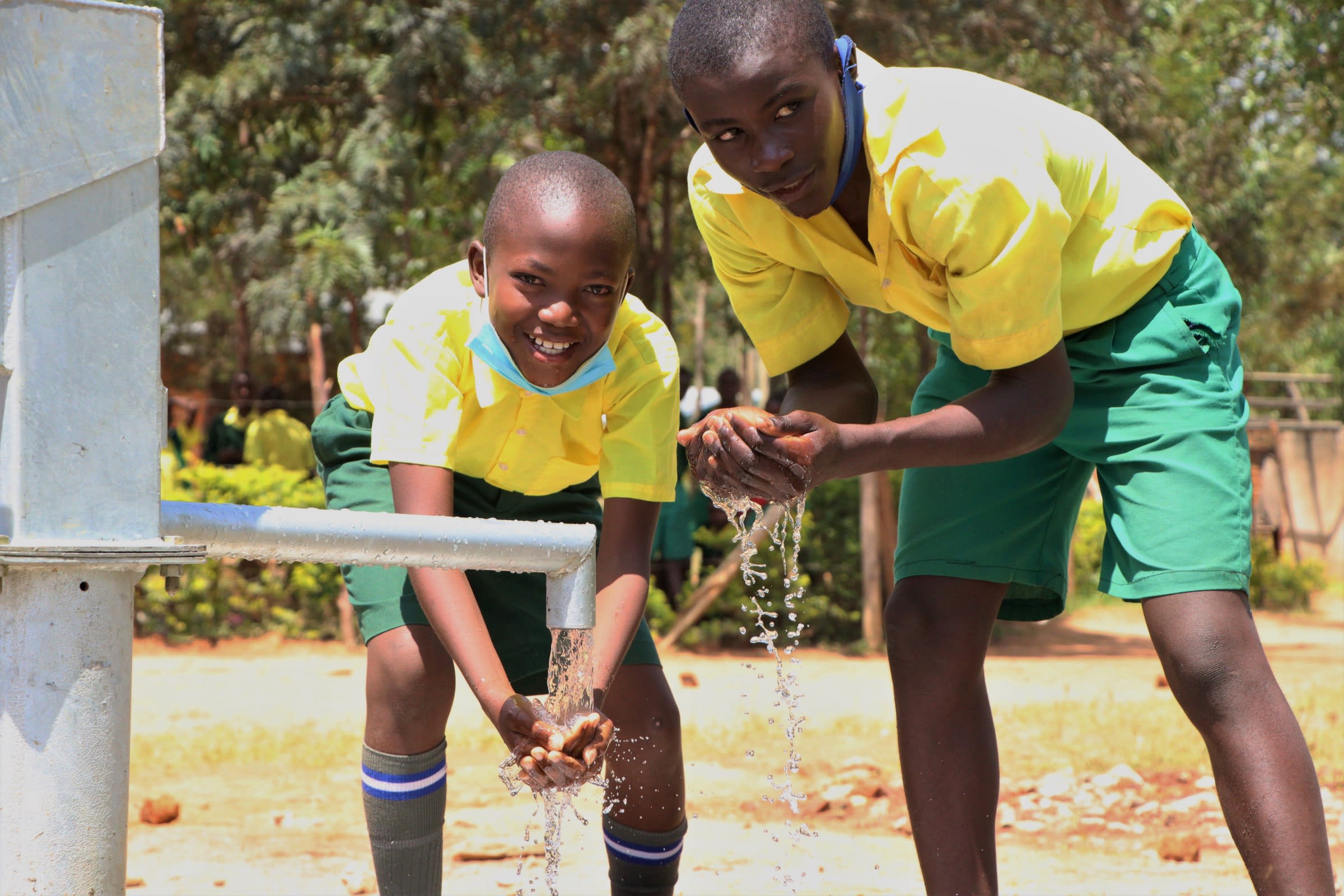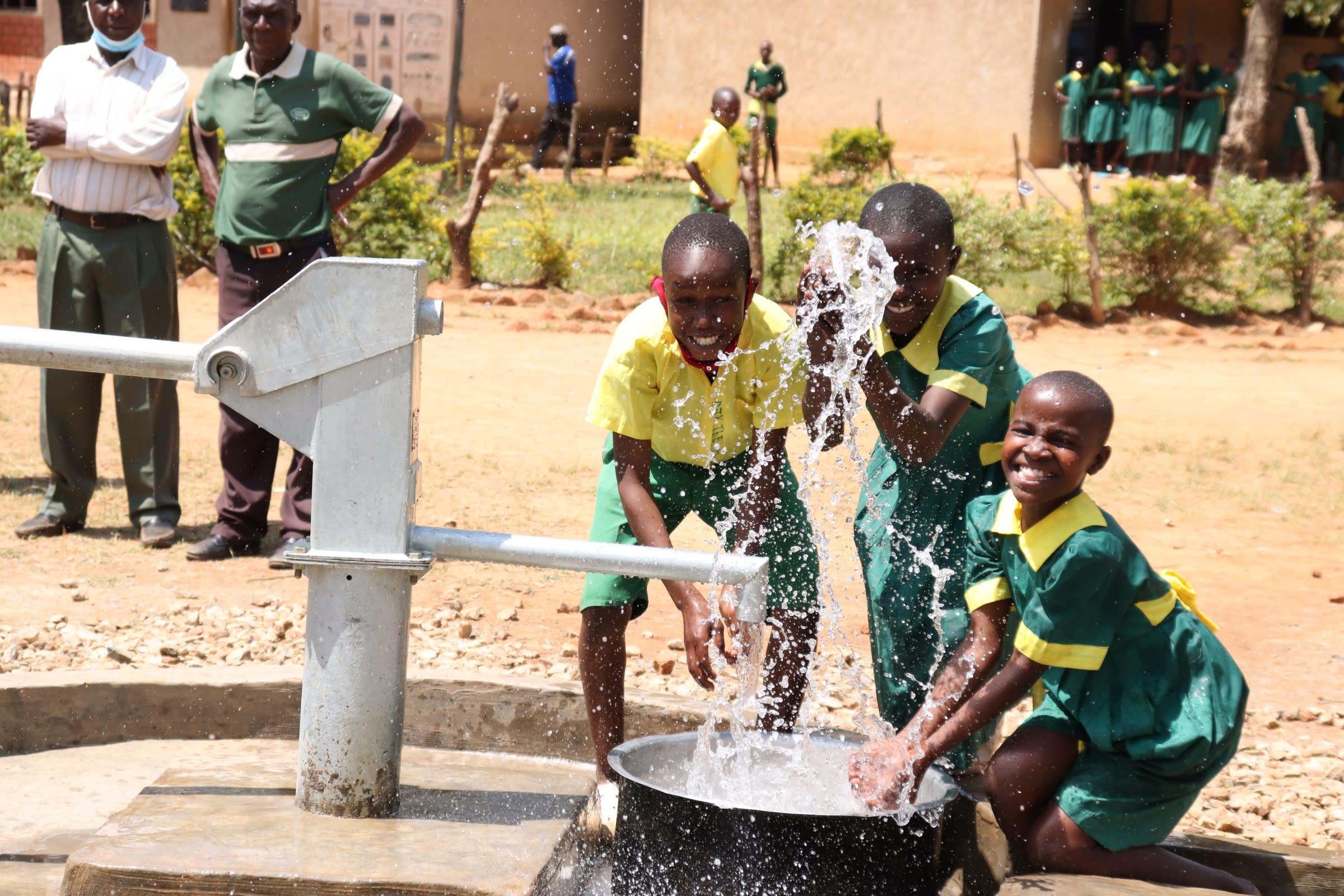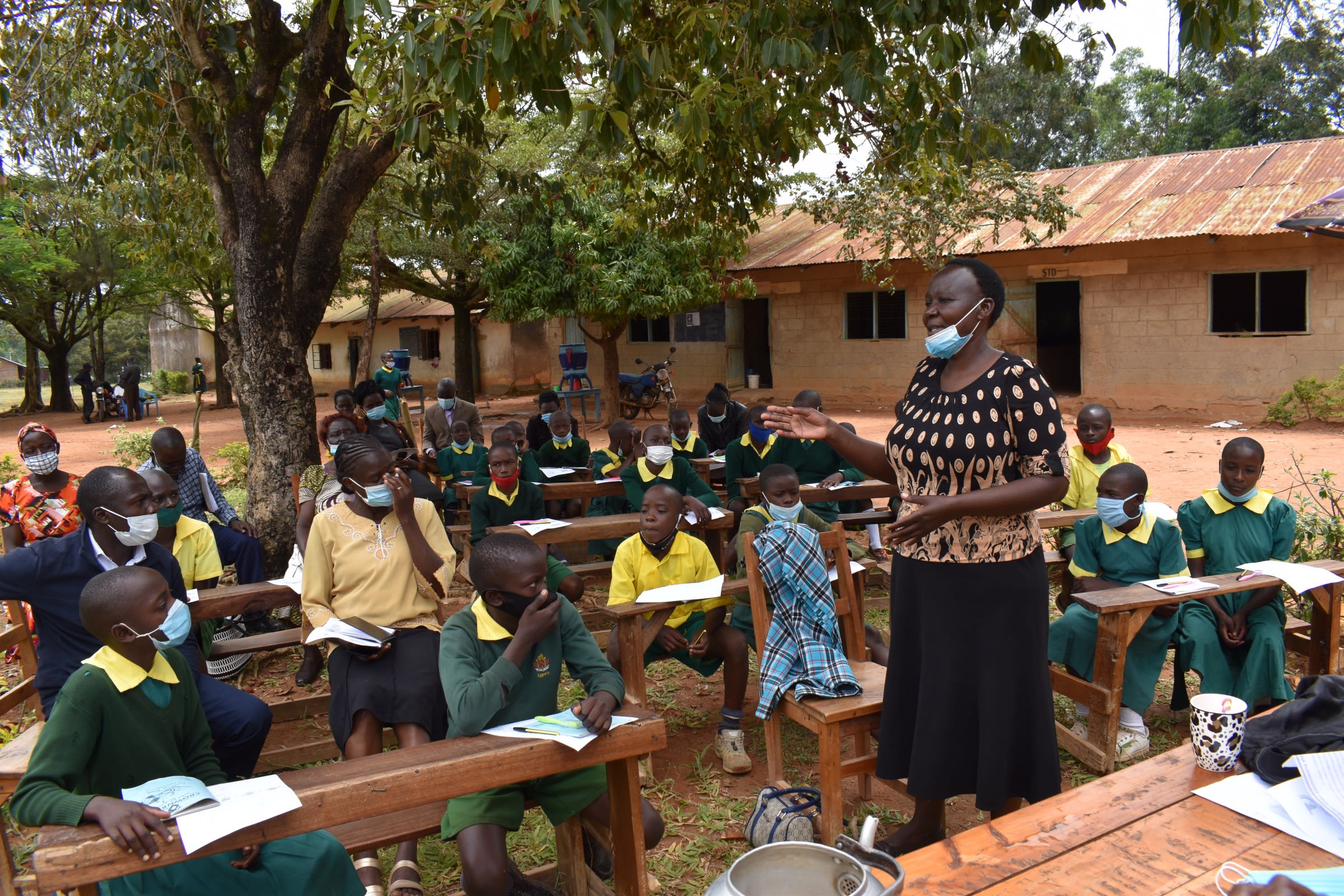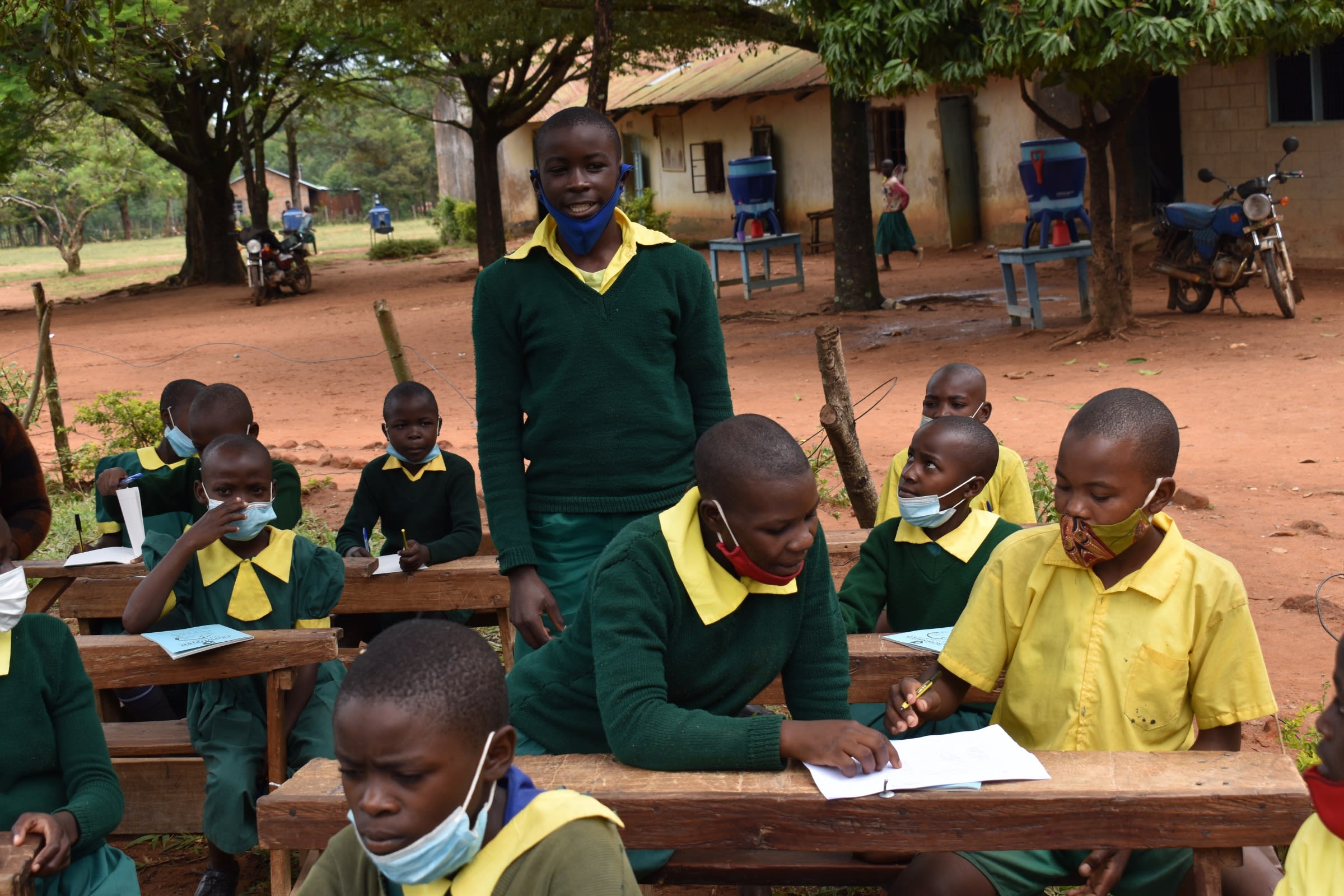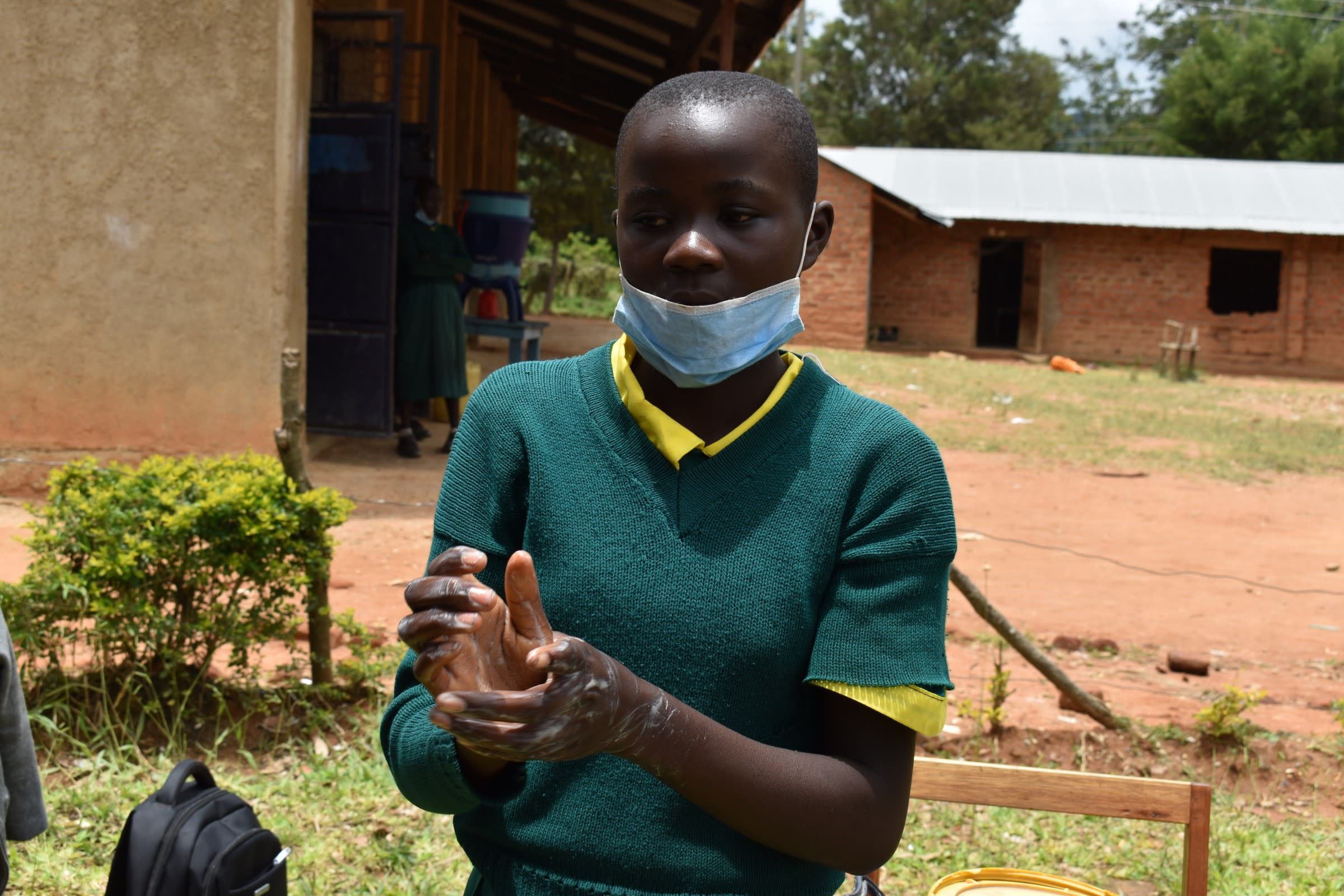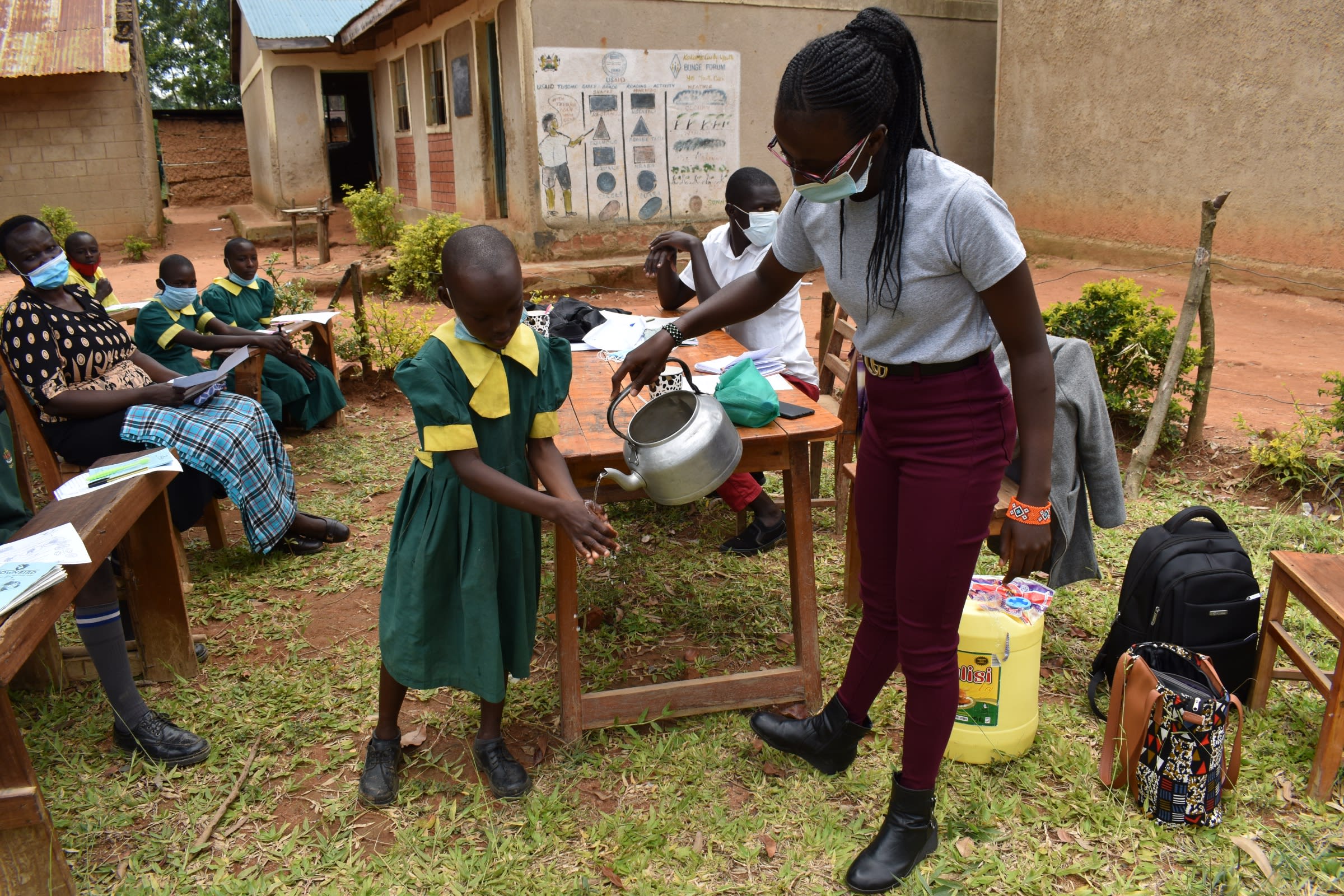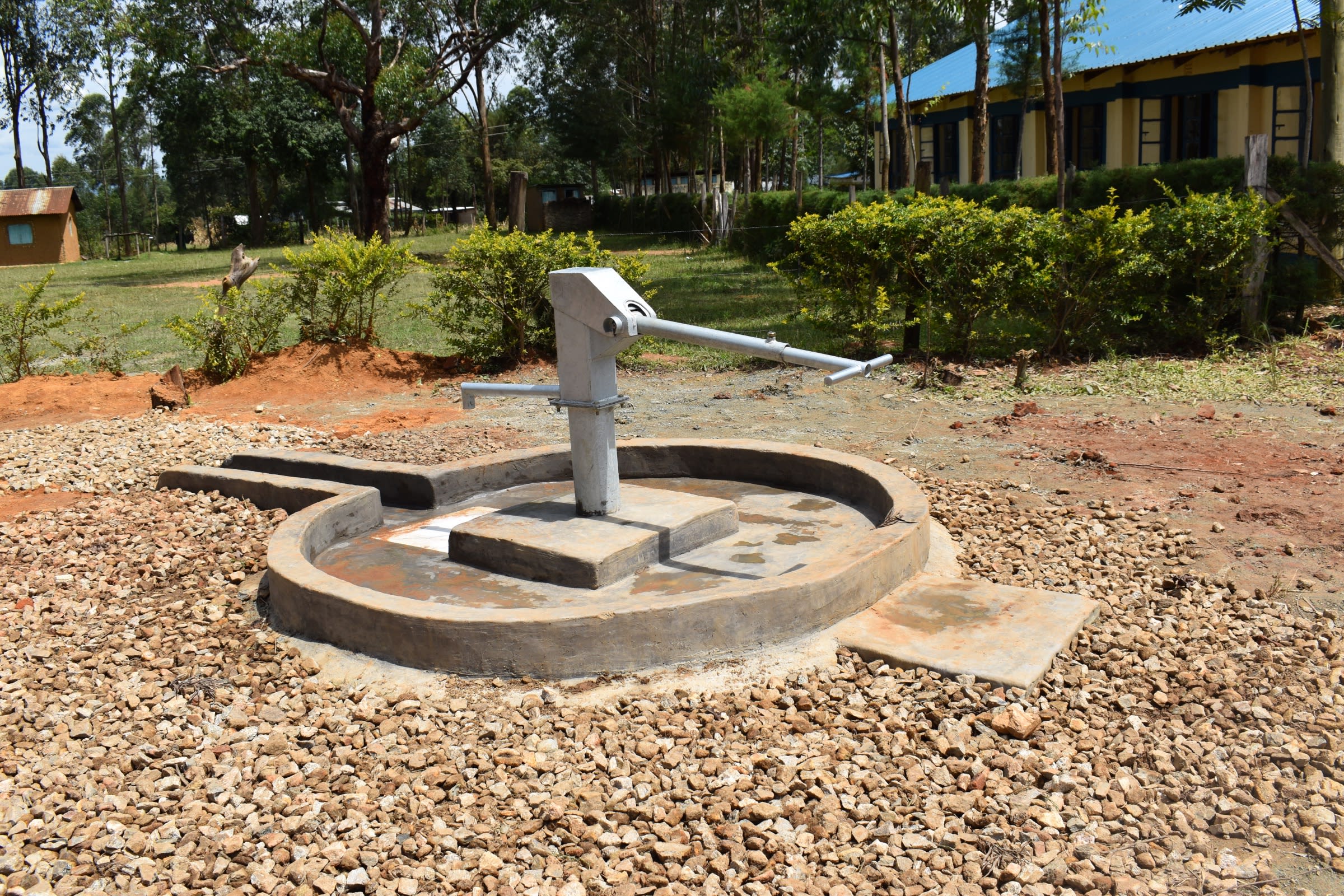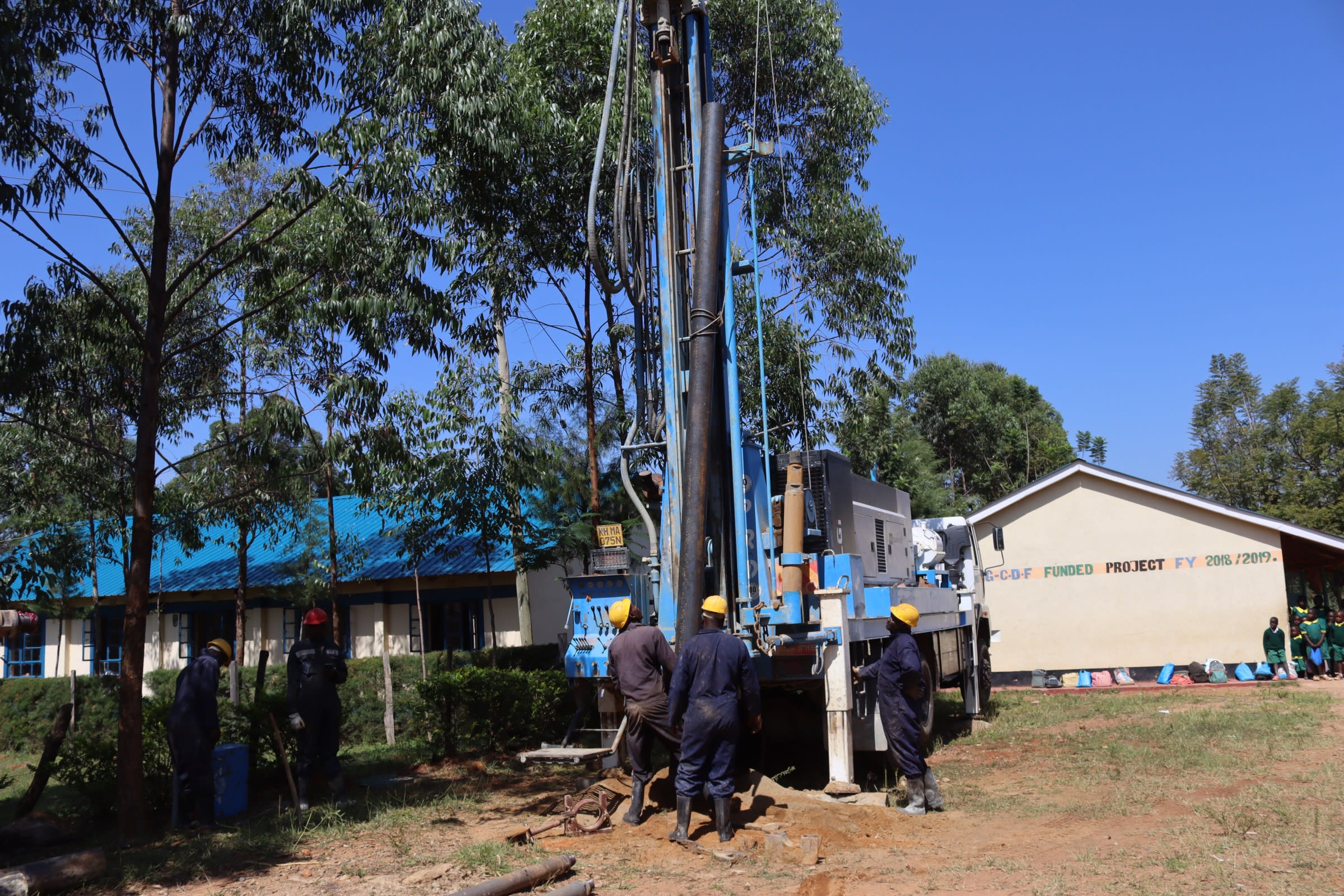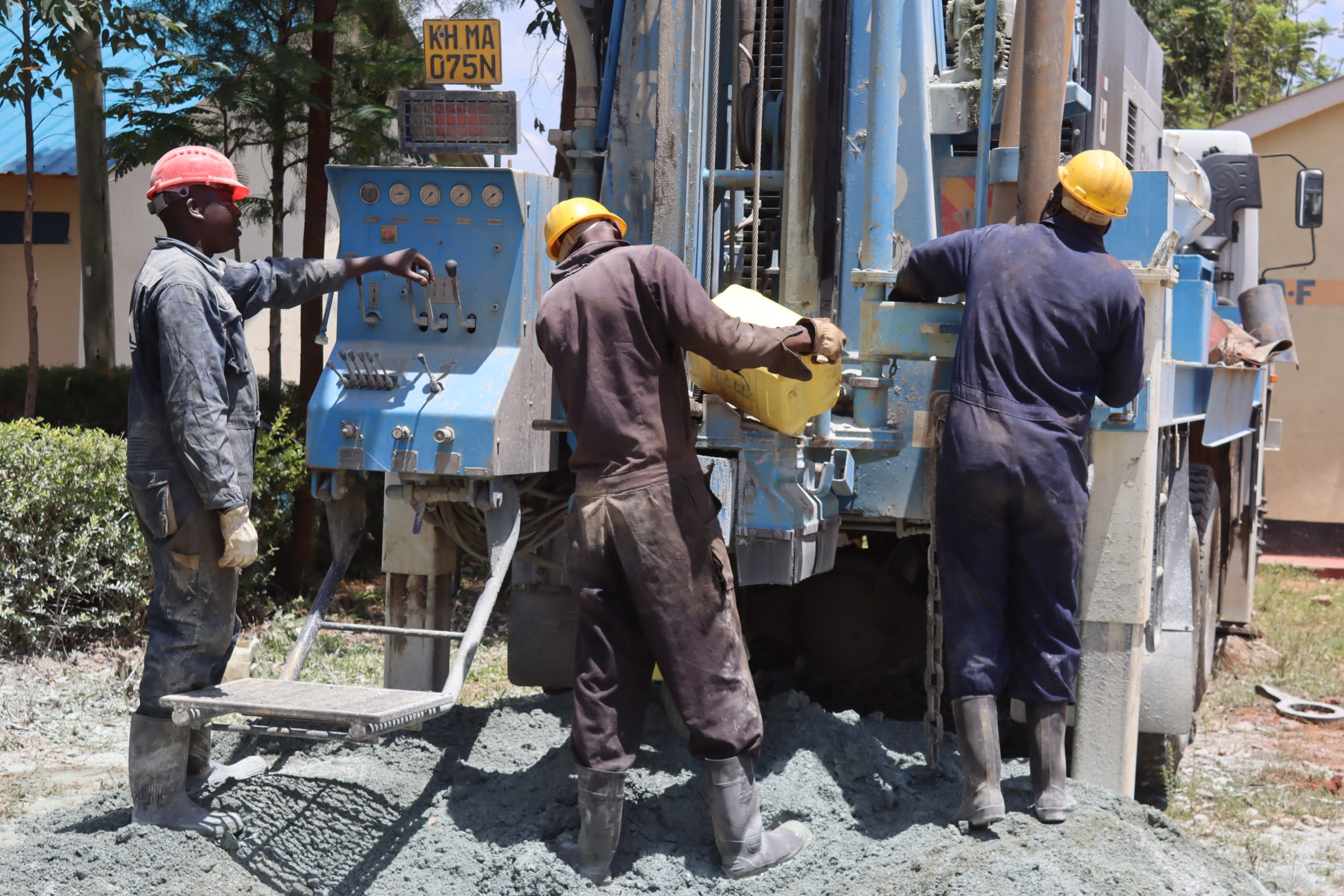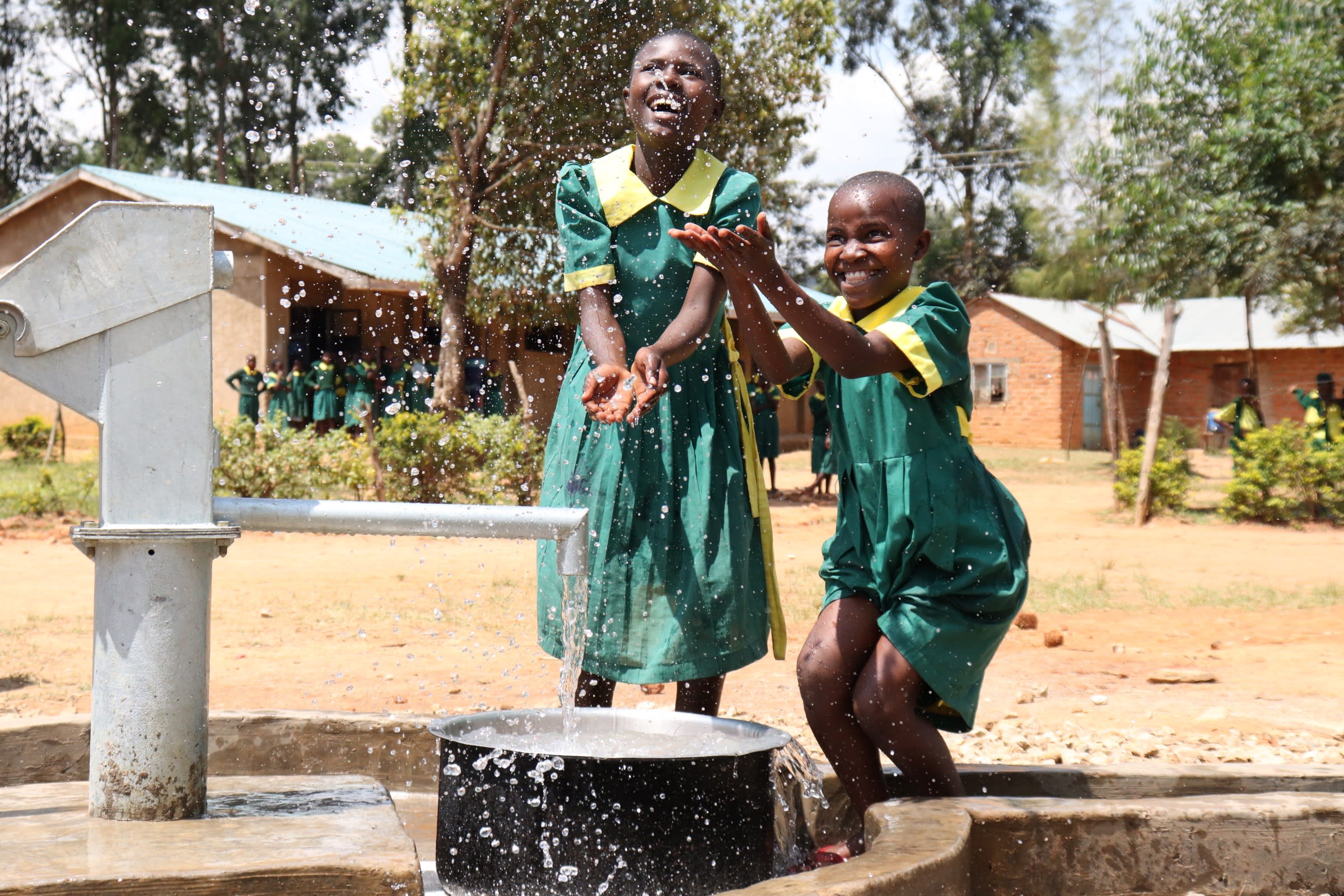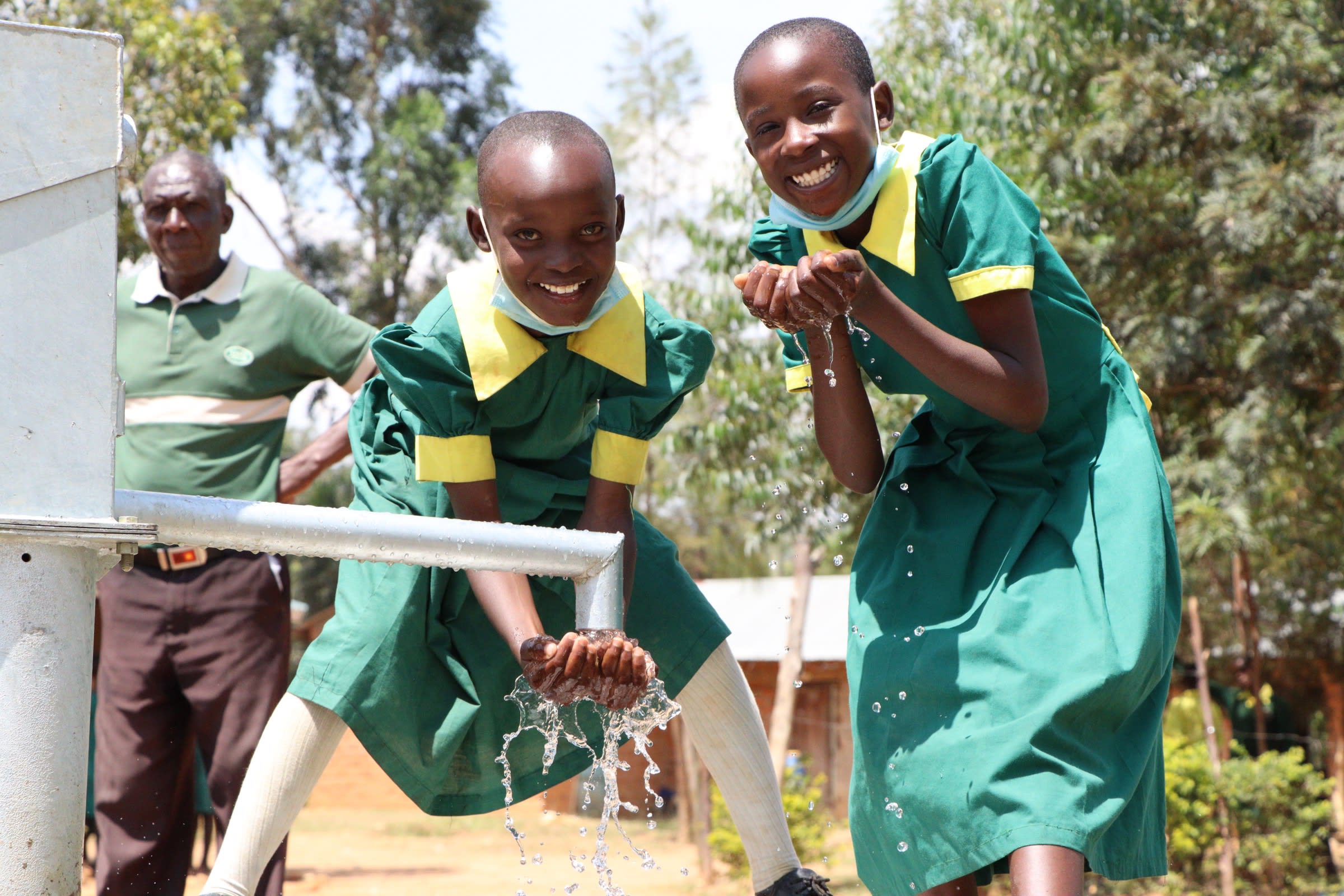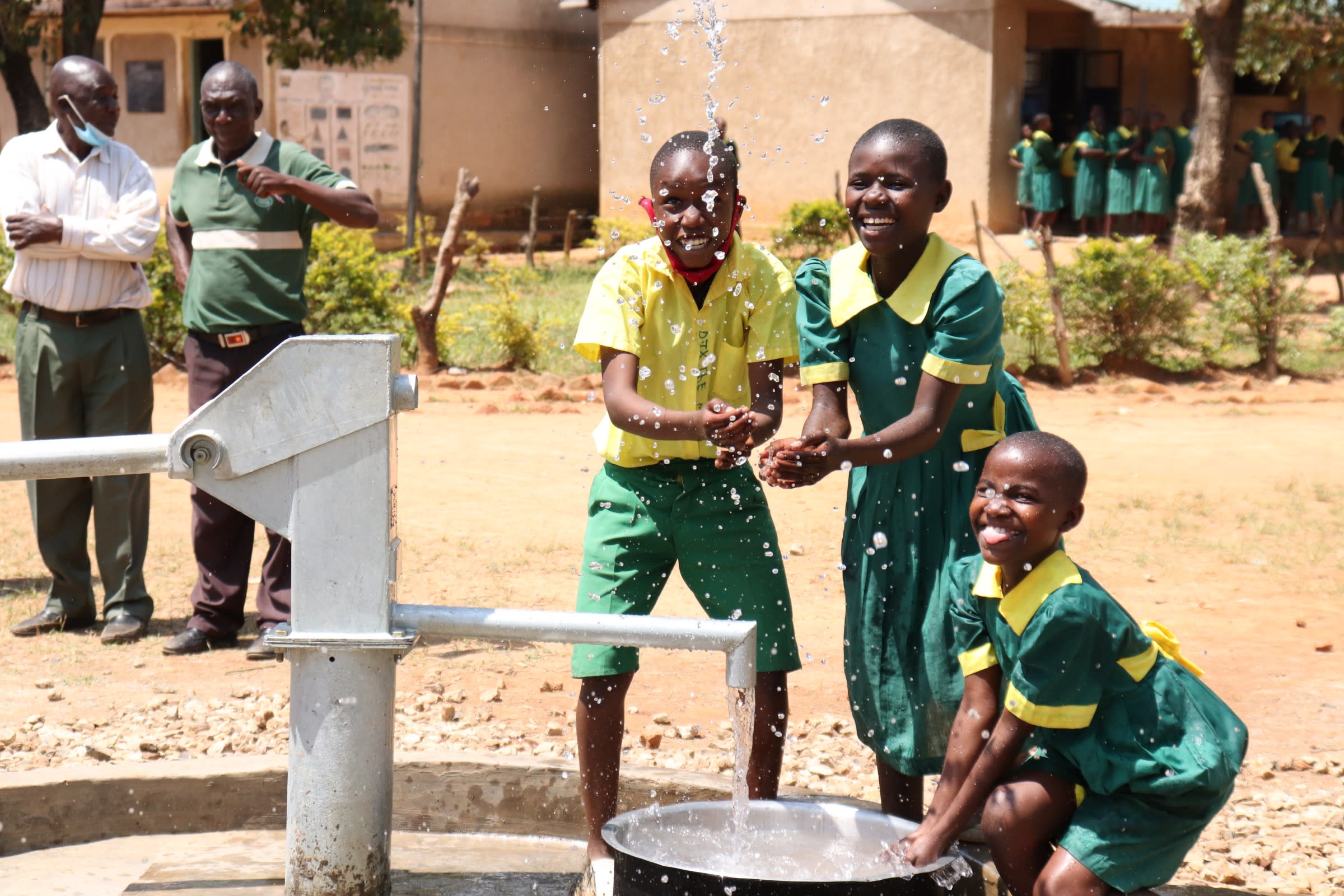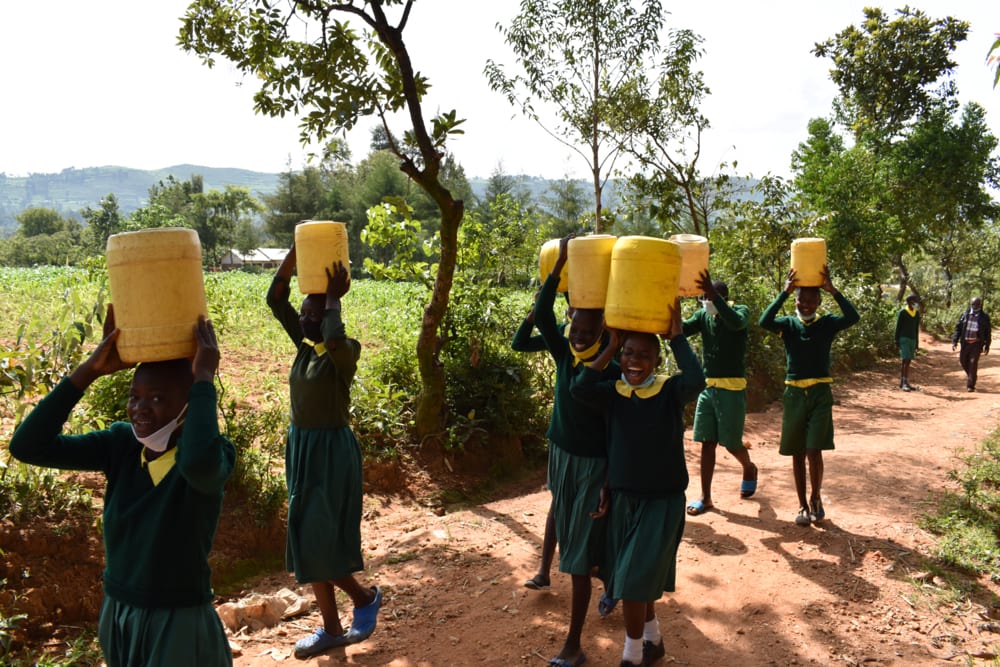Matete Primary School is just a few kilometers from Kakamega Eldoret, a busy highway. Stepping outside during the dry season may make one mistake the area for an arid region. But during the rainy season, the growth of vegetation leaves the environment very serene.
The school was established in 1946 with support from Friends Quaker Church. They aimed to eradicate illiteracy in the community and reduce the long distances that learners had to travel for school by going outside the community. The school has been doing well, producing pupils with good performance in the national examination. Some of those students have gotten an opportunity to study in national schools here in Kenya. Their achievements are also marked by the current number of members of the county assembly who were students of the school.
Early in the morning, students have to carry water to school for use within the school. Because the water collected in the morning is not enough to cater to all of the school's water needs, learners are sent to fetch water outside the school compound at a local stream during break and game times. The stream is situated a few kilometers away from the school on a gradual slope that makes it easy for runoff water to deposit all types of contamination. It is also very dangerous, especially for young kids, during the rainy season.
"At our home, we draw water from a spring which is quite a distance away from our home. So very early in the morning, I have to go and fetch water at that spring to be carried to school. When I arrive home from the spring, I prepare myself, eat my breakfast then take my books together with the fetched water to school. By the time I reach school, I am totally exhausted," said 12-year-old female student Lavender.
The school relies on several sources for drinking water, including water fetched from a nearby stream, water carried by pupils from their various homes, and water from a well at a nearby secondary school. All of these have their own challenges. Pupils carrying water from their homes are not always using safe, clean containers and sometimes find water along the way in questionable places. The stream is situated a few kilometers away from the school, so it takes time and energy. A teacher has to accompany the kids to collect water because it is dangerous to access. At the Secondary School, the water point is not reliable because it is prone to breakdown, is often overcrowded, and has restricted use. Regardless of where they gather it, collecting water is tiresome and consumes time that learners could utilize for their studies.
"We are experiencing a great challenge when it comes to water in our school. It has impacted us negatively because pupils going for water outside the school compound consumes a lot of time for the learners and me personally because when teaching, pupils might have gone for water. It also paves the way for absenteeism because of sickness, meaning some of my learners will be missing what I have already taught to the rest of the pupils," explained Headteacher Francis Changu.
What We Can Do:
New Well
We conducted a hydrogeological survey at this school, and the results indicated the water table beneath it is an ideal candidate for a borehole well. Due to a borehole well's unique ability to tap into a safe, year-round water column, it will be poised to serve all of the water needs for this school's large population, even through the dry months.
The school will help collect the needed construction materials such as sand, rocks, and water for mixing cement. They will also provide housing and meals for the work team, in addition to providing local laborers. We will complement their materials by providing an expert team of artisans and drilling professionals, tools, hardware, and the hand pump. Once finished, the school’s students and staff will use water from the well and staff for drinking, handwashing, cooking, cleaning, and much more.
The school and we strongly believe that all of these components will work together to improve standards at this school, which will help lead to better student academic performance and unlock the opportunity for these students to live better, healthier lives.
Handwashing Stations
The student health club will oversee the two new handwashing stations we will provide and ensure they are kept clean and working. The club leaders will fill the handwashing stations with water daily and make sure they are always supplied with a cleaning agent such as soap or ash.
VIP Latrines
Two triple-door latrine blocks will be constructed with local materials that the school will help gather. Three doors will serve the girls, and three doors will serve the boys. These new latrines will have cement floors designed to be easy to use and clean. And with a rain tank right on school property, there should be enough water to keep them clean.
Training on Health, Hygiene, COVID-19, and More
We will hold a one-day intensive training session with students, teachers, and parents. This training will cover a wide range of topics, including COVID-19 symptoms, transmission routes, prevention; personal and environmental hygiene; and the operation and maintenance of the rain tank, latrines, and handwashing stations. There will be a special emphasis on handwashing.
Our team of facilitators will use various methods to train, including participatory hygiene and sanitation transformation and asset-based community development. We will initiate a student health club, which will prepare students to lead other pupils into healthy habits at school and home. We will also lead lectures, group discussions and provide illustrative handouts to teach health topics and promote good hygiene practices within the school, including handwashing and water treatment. We will then conduct a series of follow-up training before transitioning to our regularly scheduled support visits throughout the year.

 Borehole Well and Hand Pump
Borehole Well and Hand Pump
 Rehabilitation Project
Rehabilitation Project













